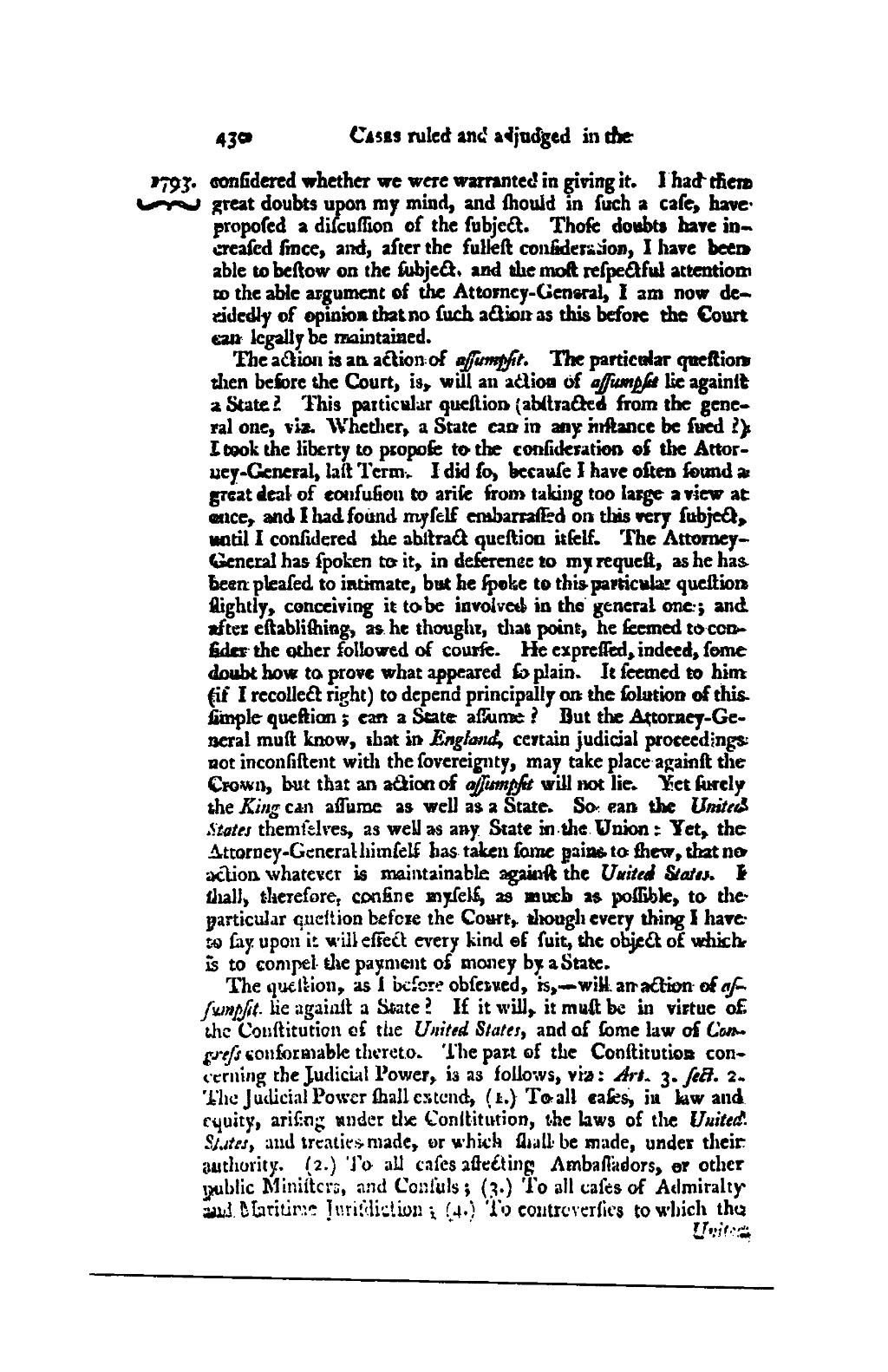1793.
considered whether we were warranted in giving it. I had then great doubts upon my mind, and should in such a case, have proposed a discussion of the subject. Those doubts have increased since, and, after the fullest consideration, I have been able to bestow on the subject, and the most respectful attention to the able argument of the Attorney-General, I am now decidedly of opinion that no such action as this before the Court can legally be maintained.
The action is an action of assumpsit. The particular question then before the Court, is, will an action of assumpsit lie against a State? This particular question (abstracted from the general one, viz. Whether, a State can in any instance be sued?) I took the liberty to propose to the consideration of the Attorney-General, last term. I did so, because I have often found a great deal of confusion to arise from taking too large a view at once, and I had found myself embarrassed on this very subject, until I considered the abstract question itself. The Attorney-General has spoken to it, in deference to my request, as he has been pleased to intimate, but he spoke to this particular question slightly, conceiving it to be involved in the general one; and after establishing, as he thought, that point, he seemed to consider the other followed of course. He expressed, indeed, some doubt how to prove what appeared so plain. It seemed to him (if I recollect right) to depend principally on the solution of this simple question; can a State assume? But the Attorney-General must know, that in England, certain judicial proceedings not inconsistent with the sovereignty, may take place against the Crown, but that an action of assumpsit will not lie. Yet surely the King can assume as well as a State. So can the United States themselves, as well as any State in the Union: Yet, the Attorney-General himself has taken some pains to shew, that no action whatever is maintainable against the United States. I shall, therefore, confine myself, as much as possible, to the particular question before the Court, though every thing I have to say upon it will effect every kind of suit, the object of which is to compel the payment of money by a State.
The question, as I before observed, is,—will an action of assumpsit lie against a State? If it will, it must be in virtue of the Constitution of the United States, and of some law of Congress conformable thereto. The part of the Constitution concerning the Judicial Power, is as follows, viz: Art. 3. sect. 2., The Judicial Power shall extend, (1.) To all cases, in law and equity, arising under the Constitution, the laws of the United States, and treaties made, or which shall be made, under their authority. (2.) To all cases affecting Ambassadors, or other public ministers, and Consuls; (3.) To all cases of Admiralty and Maritime Jurisdiction; (4.) To controversies to which theUnited

